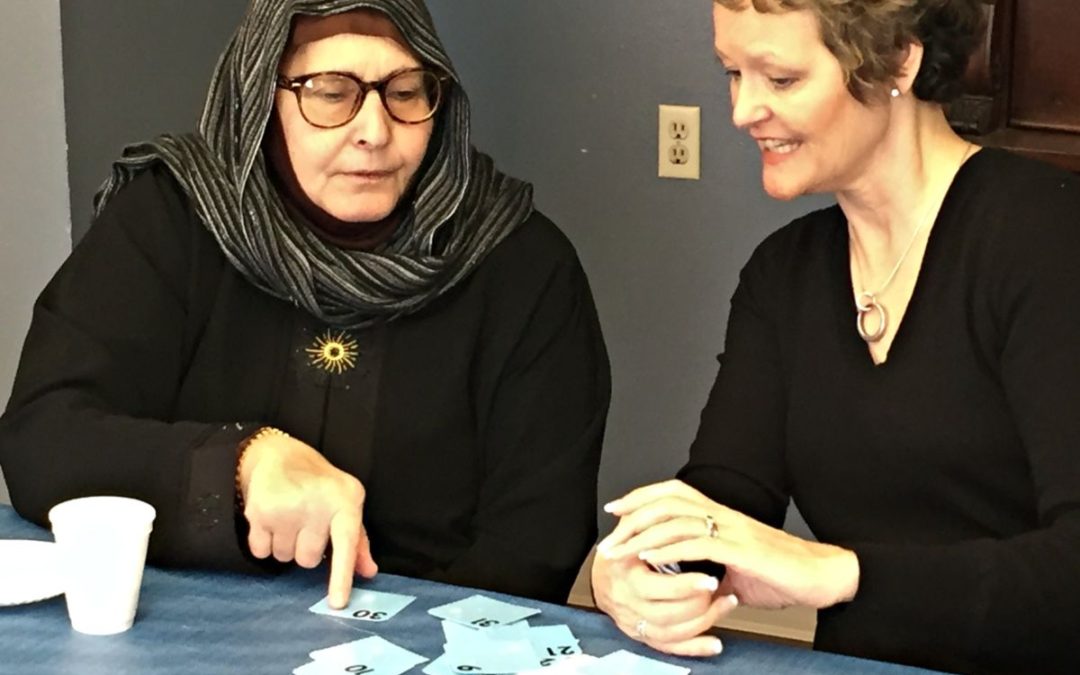Theres an old saying that growing old is not for the meek.
One of the many challenges some seniors will face as they grow older is isolation. For seniors who are immigrants and dont speak English very well, the isolation can be even more profound. Last year, the Catholic Centre for Immigrants started a new program called Seniors Circles. There are some programs elderly central services that help to combat the isolation for senior citizens by having a call service providing senior friendly cell phones that they can use to contact their friends and family.
Seniors Circles is a program that brings together isolated seniors who want to improve their conversational English skills and make friends. This program is part of a collaborative project, Keeping Ottawa Seniors Connected (KOSC), funded by Employment and Social Development Canadas New Horizons for Seniors (See KOSC partners at http://kosc.ca/project-partners/).
Seniors Program Coordinator Silvana Valentone answered these questions about the program.
Q. How do seniors become isolated?
A. Seniors become isolated for a variety of reasons. One, in the case of immigrants, would be the inability to speak English. That would make any person more isolated from the community. Also, as a newcomer arrives in Canada and grows older, they can lose connections to their family. A spouse may have passed away. Younger members of the family may have moved away or started to focus on their children.
Q. What does the Seniors Circles program offers them?
A. Its an opportunity to meet with other seniors and practise their English skills – speaking and listening comprehension. Its not a formal ESL class. However, we do try to teach the language in such a way that they can better connect to the community. For example, we might practise the English words for various body parts so they can communicate better with their family physician or other health care professionals. We want the circles to be social. Although each circle has a designated facilitator, any senior can lead by sharing their wisdom, experience and stories. There are always snacks and participants are welcomed to bring food to share. Often, there are different activities at each circle, such as chair exercises, self-massage, singing, arts and crafts, Tai Chi and mindful breathing all led by the seniors in the group. Everyone is encouraged to interact with other members of the group and their neighbours outside of the circle to make friends and become less isolated.
Q. Where is the program held?
A. We have several circles up and running. Thanks to internal referrals from the Catholic Centre for Immigrants, and in collaboration with KOSC partners, we started offering these conversation circles in several Ottawa Community Housing (OCH) buildings. In certain cases, we were able to identify participants easily by reaching out to various community organizations like the Somali Centre for Family Services. Quite often, the population we are targeting live close to one another even in the same building. We reached out to these people and if there was enough interest, we then set up the circle. We also have a circle at the Catholic Centre for Immigrants on Argyle. (For a list of current circles, please click here)
Q. How does one participate?
A. The only real criteria is that you are a senior and you need and want to practise your conversational English skills. For safety reasons, the circles running at OCH buildings are open only to tenants and their guests, friends who might live elsewhere. Our Seniors Circles are very specific in how they support this vulnerable population, although we can refer seniors to other programs depending on what their other needs are. Another way to be involved in our Seniors Circles is to become a volunteer with the Catholic Centre for Immigrants for this program. Those interested in supporting Ottawas immigrant seniors can do so in different ways, from facilitating weekly circles to interpreting a presentation for a particular group.
Q. How are we reaching out to seniors who might be isolated?
A. We know from experience there are seniors out there who are isolated. The challenge is to find them and let them know this program can be of benefit. One of the things we are doing is connecting with pharmacists. Quite often, the pharmacist is the one person isolated seniors will see on a regular basis. Although the pharmacist might not know who is isolated, they are still a regular and first-person of contact for these seniors. We hope they can spread the message about this program.

